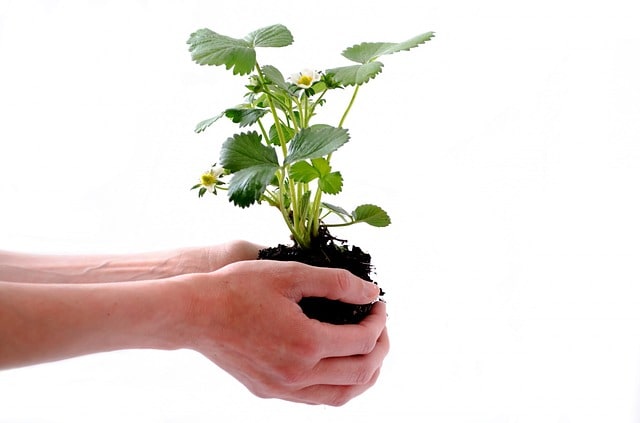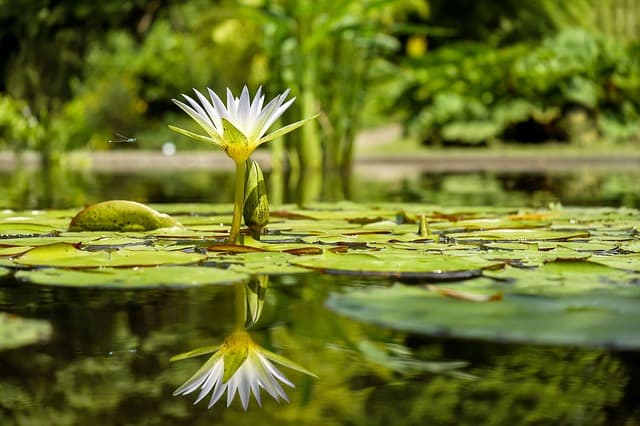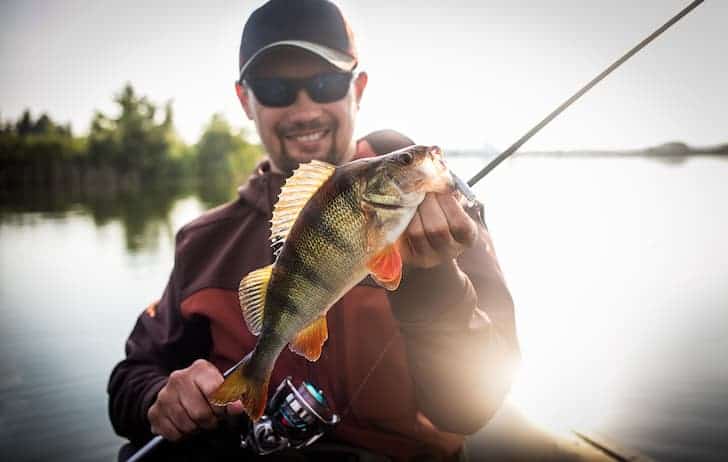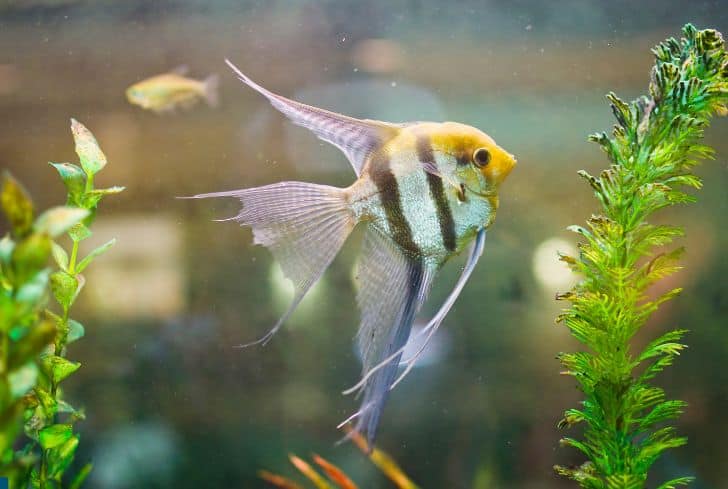Do Ponds Attract Mosquitoes?
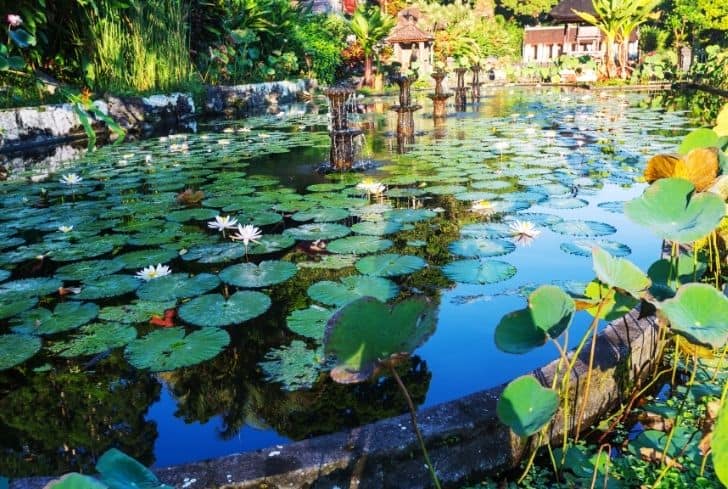
Mosquitoes are an iconic summer pest menace. But do not ever take them lightly. Generally, female mosquitoes need the nutrients to build their eggs. So they spread deadly diseases such as Dengue, Malaria, Zika Virus, and West Nile Virus. And, they create a nuisance that can be dreadful for your family.
Summer months are ideal for most mosquito species for laying eggs, especially in stagnant water. Therefore, they are attracted to water, particularly stagnant water found in swamps, marshes, ponds, and sluggish rivulets. However, some species have evolved to lay eggs even in saltwater.
Do Ponds Attract Mosquitoes?
Mosquitoes lay their eggs in standing water. Ponds only attract mosquitoes if they are not adequately built or are not well-maintained. As a result, they often hold stagnant, shallow water, which creates an ideal environment for female mosquitoes to lay their eggs during their breeding season.
The best option is to build a pond ecosystem inside with freshwater flow. Mosquitoes’ eggs cannot survive in the pond if the water constantly moves and has a current. Besides, pond fish and other pond animals like frogs and dragonflies eat mosquito larvae.
Pond skimmers also help in sucking the eggs of mosquitoes out of the water. Also, you should check for nearby stagnant water and overgrown plants to protect your pond from mosquitoes.
Do Backyard Ponds Attract Mosquitoes?
Backyard ponds are undoubtedly a beautiful relaxing addition to anyone’s outdoor place. However, where the water of backyard ponds is not appropriately maintained, you’ll find that the water becomes still and stagnant or holds stagnant, shallow water. As a result, they attract mosquitoes and become an ideal breeding ground for female mosquitoes to lay their eggs during their breeding season.
Once they hatch, the stagnant water will provide the primary food source for the mosquito larvae. When the larvae hatch, they eat nutrients such as algae growing on the surface to survive and thrive until they become fully-grown biting adult mosquitoes.
Do Mosquitoes Breed in Ponds?
When it comes to breeding, mosquitoes primarily prefer two things. First, excessively shallow water and second, of course, stagnant water. Therefore, mosquitoes breed in ponds where ponds are not that deep and have standing water that becomes stagnant.
Female mosquitoes lay their eggs on the surface of stagnant, shallow bodies of water. After the larvae hatch, they start eating the algae on the surface and quickly grow into an adult. Hence, you should well-maintain a pond regularly to stop your pond from becoming a breeding ground for mosquitoes.
Remember, a pond you don’t clean out is stagnant water, which can infest the pond with mosquito larvae and increase the likelihood of mosquito population in the surrounding area.
Do Mosquitoes Breed in Saltwater?
Yes, you’ll also find some breeds of mosquitoes that like to lay their eggs in saltwater. This group primarily includes the mosquitoes Aedes taeniorhynchus and Aedes solicitous. These mosquitoes also lay their eggs on the ground like the Floodwater species, but only where brackish or saltwater will moisten them.
However, if they choose locations where the water is too salty, their offspring will die in some cases, depending on their breed.
What To Do if You Have Mosquitoes Near Your Pond?
Sometimes people find mosquitoes near their pond and everywhere surrounding the pond. Below are some handy steps to take to get rid of mosquitoes by your pond:
1. There may be stagnant water in your yard, like water standing in a birdbath, clogged gutter or low-lying ditch. To get rid of these mosquito-attracting areas, treat the remaining water with mosquito pellets.
You have to make sure that you follow all directions carefully written on mosquito repellent containers. Try to avoid using insecticides that could kill mosquito-eating critters like dragonflies. Some products are available in the market that may even hurt your pond fish, so you need to be cautious!
2. Trim surrounding overgrown vegetation around your pond. Adult mosquitoes thrive in areas with moist plant life, like the weeds, lush greenery and other grassy areas that often surround ponds. Adult mosquitoes choose these areas where they can hide from predators.
Keeping these areas trimmed and tidy makes it less likely for mosquitoes to hang around and lay eggs in the pond. Please make sure that you regularly cut back overgrown vegetation and remove weeds and dead plants.
3. Check for plant pots which usually contain a plate that holds all the remaining water from the rain or just watering. Similarly, birdbaths are a wonderful accessory to one’s backyard as they attract all kinds of beautiful birds. Still, in that same water they drink, mosquitoes can breed.
Also, most trash bins collect rainwater, even having a lid. Empty all of them at least once a week. Besides, rain gutters and drains usually get filled with debris and trap water after a rainfall, where mosquitoes can breed. Keeping rain gutters clear of leaves and debris and free of clogs keeps mosquitos from reproducing there.
Can I Use Mosquito Dunks in a Pond?
Mosquito dunks are a safe, non-toxic, organic larvicide that kills mosquitoes using bacteria toxic only to mosquito larvae. It helps control mosquitoes’ spread when they’re in their feeding stage. They kill mosquitoes fast, generally within hours and last for 30 days or more. Usually, each mosquito dunk can treat 100 square feet of water space.
Usually, mosquito eggs are hatched in warmer weather conditions. Therefore, dunks are best used from April to September, the most active breeding season for mosquitos.
It is easy to use by simply dropping the donut-shaped dunk into the pond. The dunk will float on the surface and start working, i.e., killing mosquito larvae within hours. Gradually, the larvicide will dissolve into the water and protect the pond for 30 days. As it is very effective, you can see a difference in the overall condition of your backyard pond within 48 hours after usage.
However, before using mosquito dunks, you need to consider certain things. First, do not allow your pets to swim inside the pond, keeping them away from the area for at least 30 minutes following the mosquito dunks being placed in the water. Also, remove all floating granules leftover by skimming the top of the water surface.
How To Get Rid of Your Pond of Mosquitoes?
Mosquito control is the only way to get rid of your pond of mosquitoes. However, the best option is to build an ecosystem inside with freshwater flow to remove mosquitoes from your backyard pond. Here are 15 useful ways to get rid of mosquitoes.
- Standing water is the primary source of the population of mosquitoes. It can be an empty bottle, buckets, a pot, old tires, or a pool. Empty all such containers, drain water and cover them so they won’t fill up again when it rains to prevent mosquito larvae from swimming in them.
- Mosquito larvae survive best in shallow water. Mosquitoes prefer water shallower than 24 inches. Remember, even one ounce of standing water can hold a vast population of mosquito larvae. Therefore, make your pond deeper than two feet to avoid this problem, as water features deeper than 2 or 3 feet are less likely to be breeding grounds.
- Treat the affected pond with larvicide to destroy the mosquito larvae.
- Cut down overgrown vegetation around the pond to restrict the food supply for larvae and the hiding places for mosquitoes.
- Mosquito dunks help to control mosquitoes without affecting other pond animals.
- Floating plants like Waterlilies, water hyacinths and others that float on the water surface create a barrier between female mosquitoes and the water they require to lay their eggs. These plants also build a shelter for fish and keep your pond water clear. Some mosquito-repellent herbs like rosemary, lavender, citronella, catnip, and mint can also be planted in the backyard.
- Fish love to munch on biting insects, especially mosquito larvae. Put plenty of mosquito-eating fish like koi and shubunkins in the pond as each one can eat up to 500 mosquitoes a day. Mosquito-eating fish is also a great way to control pests naturally. Some minnows can finish off hundreds of mosquito eggs in a single week. Check local resources to find species of fish native to your area that can eat mosquito larvae and pupae without threatening other native species.
- Dragonflies, bats and other animals will also feed on the biting pests. Suppose you create a habitat like a bat house for these creatures in your backyard. In that case, they’re more likely to visit the areas and help control mosquito populations.
- Welcome other natural predators of mosquitoes in your backyards, such as nematodes, dragonflies, bacteria, and backswimmers, which feed on mosquito eggs and larvae. Also, adding native species to your yard would help make it more inviting. Besides, you should also make a genuine effort to help support conservation efforts in your community, thereby protecting habitats beyond your backyard.
- Always keep the pond’s water moving to stop the breeding of mosquitoes, as they need stagnant water to lay their eggs. Use a pump that adds turbulence to the pond’s water and keeps it running all day during peak mosquito season from late April through early winter. You can also consider adding a fountain, different waterfalls, or anything that continuously circulates the water to avoid mosquito infestation. The mosquitoes’ eggs cannot survive in water that has a current.
- As mosquito larvae need certain nutrients to grow into adult, blood-sucking pests, you can try to eliminate their food source. Ponds are often ripe with thick layers of algae, which helps develop mosquitoes. Curb the algae by using a pond algaecide to eliminate the organic matter and other beneficial bacteria and aquatic plants to starve them before they get too big. This elimination of food supply keeps mosquitoes away and makes your pond look cleaner and more aesthetically pleasing.
- Critters like killifishes, topminnows, tadpoles and other aquatic animals are some pond friends that help you with your mosquito problem. These critters love eating larvae, and their presence can effectively reduce larvae populations.
- A natural and safe biological control option is Bt. (Bacillus thuringiensis subspecies israelensis); birth control effectively reduces mosquito larval populations. It specifically targets and only affects the larvae of mosquitoes, gnats, and black flies. It is available in the market in granular form, which is easy to apply.
- Basically, you need to have a plan for every potential standing body of water on your property to stop mosquitoes from breeding in your water features.
- A typical yard could have dozens of possible places where water collects, especially after rain. If mosquitoes are already an issue, it’s best to get the help of a professional pest control company to handle the situation at the earliest.

